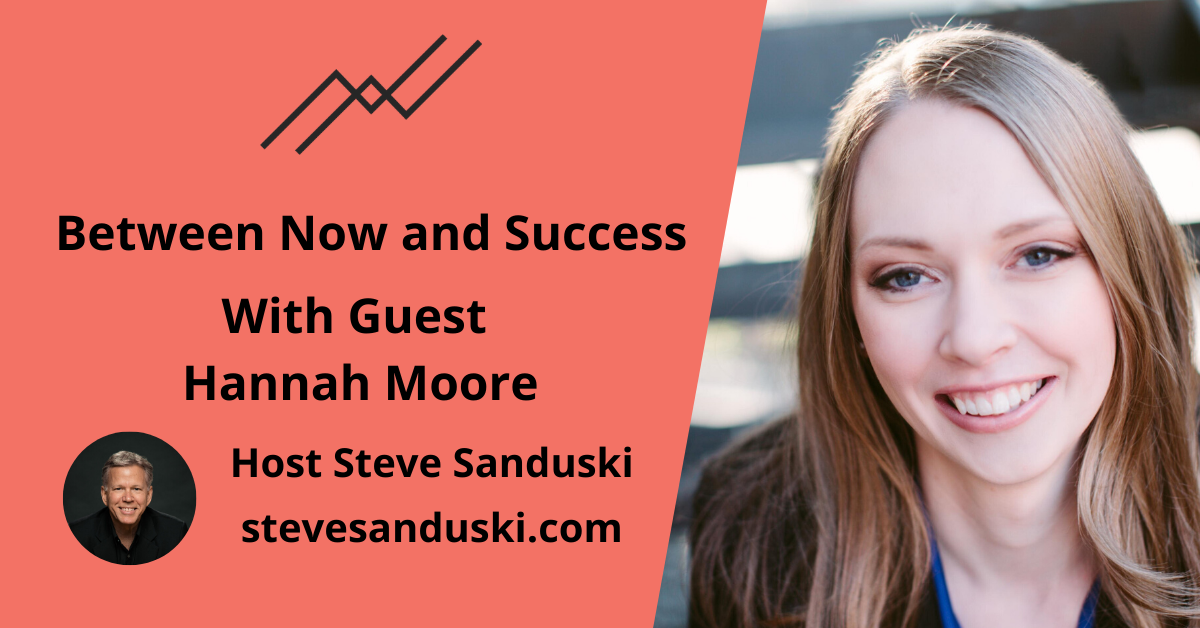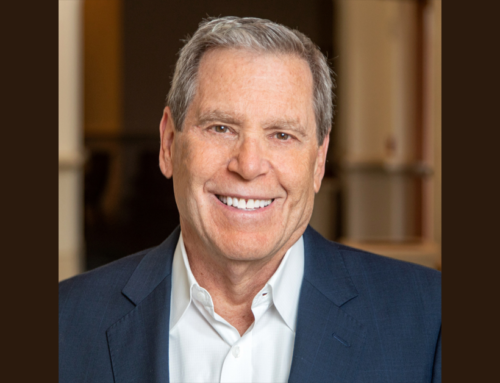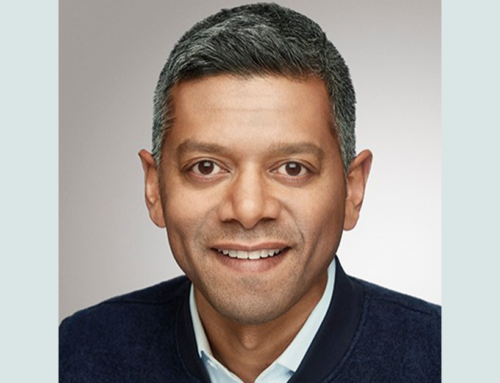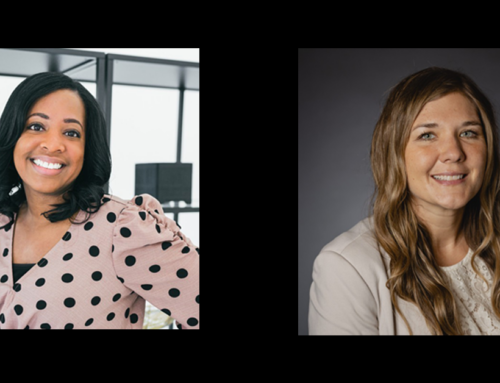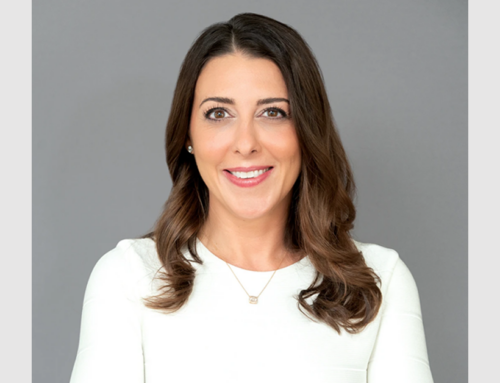Curiosity. The best advisors have it. Hannah Moore’s curiosity has led her down many roads and in today’s podcast, she shares what she’s learned about structuring the client meeting process, creating client personas, blogging to “just one person,” using three words to define your business, succession planning, and much more.
My guest today, Investment News “40 under 40” honoree Hannah Moore, is an expert on charting a course from young advisor to successful RIA. Hannah is a CFP® and owner of Guiding Wealth Management. She also hosts the podcast, “You’re a Financial Planner, Now What?” where she tries to help young advisors with guidance on career paths, tips on research and client service, and explorations of the history of financial planning.
10 Key Tips for Young Advisors from Hannah Moore:
1. “Young advisors really have to look at the opportunity cost of succession plans. I bought a practice where the average age of a client was between 65 and 70. If we would have had a normal timeline, where I worked there for five years, and then I have a five-year buyout, within 10 years that practice is not worth a whole lot. I set up some structure. I look back at it and if things didn’t unfold in the timeline I’d established, I probably would have left and started my own firm.”
To continue reading the rest of this post, please register below with your email address.
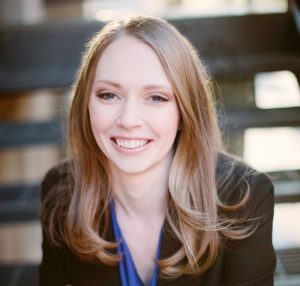
Hannah Moore: I think young advisors approach life a little bit differently. We’re willing to ask the question, How much is enough?
2. “Clarity, Simplicity, and Confidence. As a 22-year-old being told you’re a succession plan, you start building out, ‘What’s the type of firm that I want?’ Those are the three words that just kept coming up. Providing the clarity that so many advisors don’t. They give clients huge notebooks that don’t make anything about the plan clear. I realize that’s a huge value that I offer my clients, that simplicity. It is not unusual for me to walk into a client meeting now with four pages where everything is simplified. We simplify as much as we can. Confidence, I hope, is what my clients gain from working with me.”
3. “When I speak to my clients, when I write a blog, when I do a newsletter, I put it through that filter: Clarity, Simplicity, and Confidence. I’ll ask people outside the industry. I’ll ask family members and friends, just to get feedback on, ‘Does this make sense? Do you understand it?’ I think it’s a consistent message of, ‘I’m not throwing jargon out at people. I’m going to make a very big effort not to do that.’ I think just that consistent message and that consistent filter that I’m putting over all of my content makes a big difference. When I send out emails to my clients there’s a very, very high open rate, because I only send out good stuff.”
4. “I target specific ‘client personas.’ I call them my ‘Retiring Ricardos’ and my ‘Successful Sallies.’ They’re reflective of my client base and, really, the new clients that I have who are coming in. My Retiring Ricardos, they’re pretty much your typical $1 to $5 million in investable assets, getting near retirement, wanting help navigating that transition. Then I have my Successful Sallies, people who are making more than they ever thought that they would and they’re now like, ‘Well, what we do with this? How do we manage this well?’ Those are really my two demographics.”
5. “The first meeting, the client does all the talking. The first thing that I have clients do is walk through a communication preference exercise. That’s asking them how they want me to communicate with them. It’s a really powerful way to start the relationship. I ask them a bunch of questions. There is a list of probably 15 to 20 different ways that clients like to communicate. ‘Get to the bottom line,’ or ‘I need time to process my response,’ or ‘Don’t mistake my lack of attention for inattention.’ It’s more on the soft side — how do they process information and what do I need to know about them? Then I have a list of 10 to 15 questions that I go through with clients to really understand their money background. ‘What are the lessons that you learned about money growing up? What are your biggest financial mistakes? Your successes?’ Everything I do, I want to be focused on the client.”
6. “Compared to a lot of advisors, we go slow. We go through a basic PowerPoint, very, very basic on investments, what the clients need to understand, the terminologies that we’re going to be using with them when it comes to their investments. I walk through the risk profile questionnaire with my clients, because I found that, quite frankly, when I emailed it out to them they had no idea what the questions even meant let alone how to answer them correctly. We go through that risk profile. We decide on an investment policy statement. We’ll look at where their investments have been and where they want to go. Ultimately, we have a 6-meeting process with new clients, part of which came from working with Deborah Fox at Fox Financial Planning Network.”
7. “I won’t do investment management without a financial plan. It just doesn’t make sense to me anymore. I know back when I was at a broker-dealer, I had those 250 to 300 clients. I just know what it’s like working with somebody on an investment-only basis. That’s not who I want to be as a professional.”
8. “If you’re starting your own business, you have to have some confidence. So many times we feel like we have to re-create the wheel. When imagining my business, I said, ‘I want that. I don’t know how the heck I’m going to get to it, but that’s what I want.’ I worry sometimes that these young advisors are just saying, ‘There’s no way that I can work with clients with millions of dollars.’ Yeah, there is. You just have to think about it a little bit differently. We don’t have to re-create the wheel.”
9. “I love this idea, as a profession, that we’re wiser together. Generations can be helping each other. Even if you’re out on your own and you’ve had bad experiences with older planners or successful planners, there are so many advisors out there that would be an incredible resource, that would help young advisors in growing your business.”
10. “I think young advisors approach life a little bit differently. We’re willing to ask the question, ‘How much is enough?’ We don’t have to have a several-million-dollar firm. What’s wrong with a lifestyle firm? I think there’s probably a bigger trend that way.”
Resources
- Guiding Wealth Management Visit Hannah and her team online.
- “You’re a Financial Planner, Now What?” Listen to Hannah’s podcast
- “Traction” by Gino Wickman teaches you the secrets of strengthening the six key components of your business. You’ll discover simple yet powerful ways to run your company that will give you and your leadership team more focus, more growth, and more enjoyment.
- “Rocket Fuel” by Gino Wickman and Mark Winters details the integral roles of the Visionary and Integrator and explains how an effective relationship between the two can help your business thrive.

